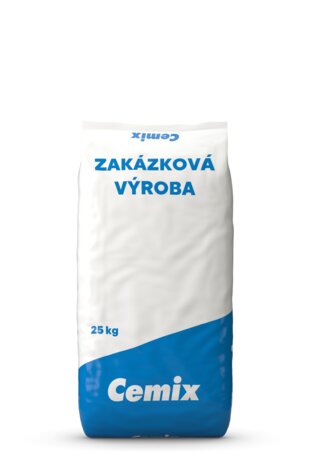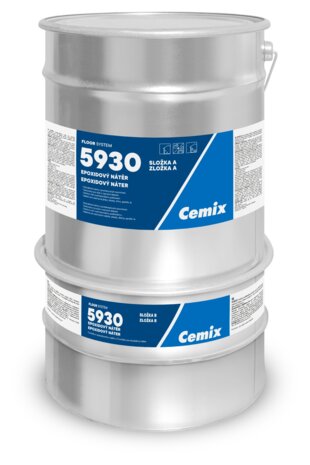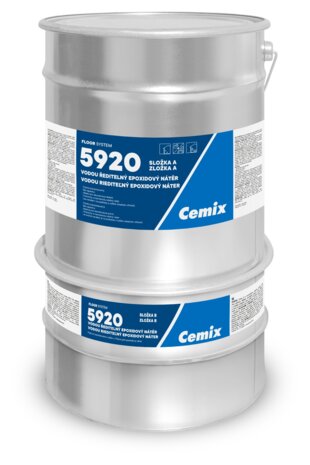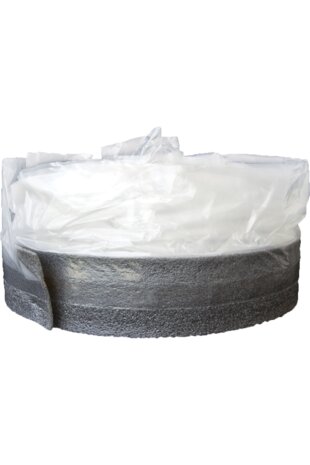|
5270
POLYMER SCREED 40MPa
Formerly While stocks last. Replaced by concretes and screeds with 5900.
Handles holes up to 50mm depth.
High durability, strengths and strong adhesion.
- Polymer cement screed with high strength and strong adhesion.
- For repairing damages in screeds and concrete up to 50 mm depth.
- For creating combined and floating screeds.
- High wear resistance, suitable for high traffic areas.
- Polymer-based for high elasticity. Eliminates cracks and is suitable for thermal expansion with underfloor heating.
- Frost-resistant, for outdoor use.
- Resistant to chemical de-icing agents.
- Suitable substrate for epoxy coatings.
Area of application
- Outdoor: floor
- Indoor: floor
Heating and cooling area
- Floor
Processing method
- For hand and machine processing
- For the production of composite and floating screeds in indoor and outdoor environments.
- For repairing potholes in screeds and concrete.
- Suitable for floors with underfloor heating without additional reinforcement.
RECOMMENDED SYSTEM PRODUCTS
Processing details
Learn more about technical details for processing this product.
Substrate requirement
The substrate must comply with the applicable standards, must be solid, free of loose particles, free of dust, paint, residues of demoulding substances and efflorescence. It must be sufficiently rough, dry and evenly absorbent. The surface shall not be frozen or water-repellent. The substrate must be stable in volume.
Substrate preparation
A bonded layer: Before applying the screed to the old concrete, the substrate must be moistened and treated with Cemix contact bridge 1500.
Floating layer: Separate the substrate with a suitable separation layer e.g. PE 0.2mm. Thermal and acoustic insulators must be stacked together without gaps. Working or structural joints must be respected and must be created perimeter dilatation of vertical building elements (walls, pillars, pipes, etc.). The substrate must comply with the applicable regulations, standards or recommendations of the material manufacturer.
Preparation of the mixture
Prepare the material by pouring the dry mixture into the prescribed amount of water and mixing it. Use potable water or water complying with EN 1008 to mix the mixture. Mix using a slow speed propeller mixer. Mix to a homogeneous, lump-free mixture and leave to rest. Then mix again briefly. Use suitable machinery when processing by machine.
Water demand

| Quantity | Liters (Min) | Liters (Max) |
|---|---|---|
| 25 kg | 2.2 L | 3 L |
| 1 kg | 0.09 L | 0.12 L |
Mixing


Processing instructions
Spread the mass on the prepared substrate and compact it, e.g. with the strokes of a trowel. Then flatten the surface with a lath and smooth it with a plastic or steel trowel. An advantage is the possibility of pulling down with a vibrating lath.
Application thickness

| Minimum layer thickness | 5 mm |
|---|---|
| Recommended layer thickness | 35 mm |
| Maximum layer thickness | 50 mm |
Consumption

Yield
| Material consumption | at | unit | Yield |
|---|---|---|---|
| 25 kg | 35 | MM | 0.36 m² |
Walkability after

24 h
Treatment after application
After application, the direct negative effects of sun, heat, humidity and draughts should be avoided. Protect from frost and rain. Direct heating of the surface is prohibited.
Tool and cleaning instructions
Wash off tools with water immediately after finishing work. Clean dried residues mechanically.
Technical parameters
| Main binder | Grey cement |
| Flammability class | A1fl |
| Max. grain size | 2mm |
| Full load after | 28 h |
| Compressive strength 28 days in N/mm² | 40 N/mm² |
| Flexural strength 28 days in N/mm² | 7 N/mm² |
| Thermal conductivity λ in W/(m.K) | 1.42 |
| Dry bulk density in Kg/m³ | 2050 |
| Dry bulk density in Kg/m³ to | 2250 |
| Release of corrosive substances | CT |
Download
|
|







